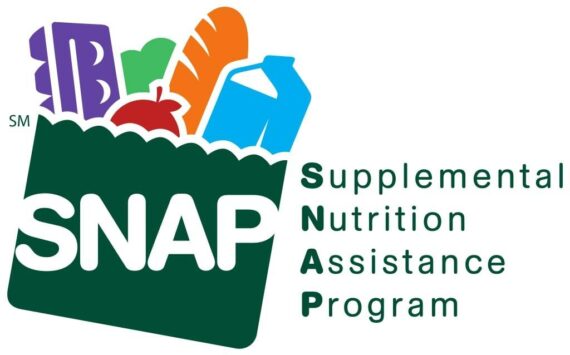With Washingtonians still facing economic hardships, many Evergreen State residents are looking to give money to help their neighbors this holiday season. To assist their generosity, Secretary of State Sam Reed and Attorney General Rob McKenna unveiled the 2010 Commercial Fundraiser Activity Report Friday that helps people avoid greedy fundraising organizations when making donations.
Reed and McKenna met at the American Association of Retired Persons (AARP) Fraud Fighter Call Center in Seattle today where they revealed the current report and shared tips on how to give wisely.
Reed and McKenna also joined AARP State Director Doug Shadel today in a telephone Town Hall with more than 10,000 seniors across the state. And they joined AARP’s volunteer Fraud Fighters in kicking off a statewide calling blitz to educate Washington residents about wise charitable giving.
“Many people are struggling during this prolonged recession, and this means that there are needs throughout our society,” Reed said. “While we applaud those who donate money to help others, we also want to make sure individuals who are able to contribute are well-informed about where their money is going. We want donors to know which charities and fundraisers provide the most bang for their bucks.”
Reed’s report spotlights recent financial information for paid fundraisers who solicit or collect donations on behalf of charity clients. The causes vary widely and include police, firefighter and veteran organizations, medical research, animals, civil liberties, and the environment, to name a few.
Commercial fundraisers use many methods to solicit the public, including the telephone and sending mailers asking them to give money to a cause.
Commercial fundraisers, who are compensated for their efforts, take a cut of the donations before sending money to the charitable organization or charge a fee for their services.
“Solicitors who seek to deceive consumers or skirt around state charity regulations should know that the Attorney General’s Office will use its enforcement powers to stop them,” Attorney General McKenna said. “But donors themselves wield one of the most powerful weapons: education. By checking out charities and fundraisers, every one of us can help assure our money is used how we intended.”
Overall this year, charities that used paid fundraisers in Washington received a little more than 75 percent of the total donations raised by those fundraisers. But the percentage individual fundraisers retained was all over the board: Some fundraisers kept less than 10 percent and sent the remaining chunk to charity, while other fundraisers raised less money for a charity than what they charged it.
“It’s important for the public to remember that when someone asks you for a donation, there’s a chance it’s a third party getting paid to make that solicitation,” Reed said. “While most of these commercial fundraisers help keep many crucial charities afloat in Washington, some wind up using the bulk of donations to pay for administrative costs and expenses or to make a hefty profit.”
The 2010 report shows the following:
— A total of $1,432,453,344 in contributions was raised in Washington and elsewhere by the 107 paid fundraisers included in the report.
— The average percentage of contributions returned to charity clients was 77 percent overall. Compared to average historic rates of return over the last decade, this is up significantly.
— About one-fourth of the paid fundraisers returned less than 20 percent to charity.
— Nearly 8 percent of the paid fundraisers returned more than 80 percent to charity.
— The best: The fundraiser with the highest percentage rate returned 98 percent to charity.
— The worst: The fundraiser with the lowest percentage rate came in at minus 122 percent, meaning the charity lost money on the partnership.
You can read the reporter online here:
Overview of the 2010 Commercial Fundraiser Activity Report — http://www.sos.wa.gov/_assets/charities/Charities_Overview2010.pdf
Full 2010 Commercial Fundraiser Activity Report — http://www.sos.wa.gov/_assets/charities/Charities_CFAR-2010.pdf
There are currently 9,757 charities registered in Washington State. Of those, 653 report using paid fundraising services.
Seniors 65 and older — a group that makes up about 12 percent of the state population — are particularly hard-hit by solicitors, and therefore have to be extremely careful and thoroughly research where their donations are going, warn the two state officials and Shadel.
“According to AARP research, older adults receive more telephone and mail solicitations for charitable donations than any other age group,” said Shadel. “But before we open up our hearts and our wallets, it’s important to make sure we are giving wisely.”
The Fraud Fighter Call Center plans to contact more than 5,000 consumers by phone over the next few weeks to provide wise giving tips and resources.
Each month hundreds of people use Reed’s online charities search at http://www.sos.wa.gov/charities to get instant financial histories and other information for fundraisers and charities. Consumers can also call toll-free 1-800-332-4483.
Those who believe they are victims of charity fraud should contact the Attorney General’s Consumer Resource Center between 10 a.m. and 3 p.m. weekdays at 1-800-551-4636 or file a complaint online at http://www.atg.wa.gov .
Consumers can also order a free “Check Before You Give” packet from the AARP Fraud Fighter Call Center by calling toll-free 1-800-646-2283.




